|
User
Reviews 5
Approval 97%
Soundoffs 61
Album Ratings 5451
Objectivity 88%
Last Active 09-06-22 1:37 pm
Joined 09-24-05
Review Comments 7,301
| FILM: tectac's Tsai Ming-liang, Ranked
Not sure how many fans of Tsai Ming-liang I’ll be able to corral on Sputnik, but a few people have (surprisingly) requested this list next, so here it is. I wanted to hold off until seeing his latest, DAYS, to ensure its completeness. Feature films only. He is without a doubt my favorite living filmmaker, and quite possibly my favorite of all time. (Only legitimate contenders: Buñuel or Leone. As far as living filmmakers go… Maybe the Dardennes?) All of these films (excepting YOUR FACE) are just various degrees of greatness. | | 13 |  | Lonker See
Hamza
>> YOUR FACE (2018)
The first—and to this day, only—Tsai that’s left me mostly ambivalent; no coincidence that it’s also his least-narrative feature (in that there’s no “narrative” whatsoever), completely negating his skill as a writer. On the spectrum of abstract and/or avant-garde cinema, it emits a Warholian (or even sub-Wang Bing) lean, reducing itself strictly to observation. That I didn’t hate this is evidence of Tsai’s ability to select interesting enough sujection, purposely juxaposing older and younger individuals, the former often completely silent, left to be superficially studied and probed, the latter typically equipped with ancedotes about their childhood, former lovers, daily routines, etc. Feels a bit like a commentary on our growing needlessness to say anything as we get older, eventually succubming to Father Time. Tsai gets bleak, but even that seems pessimistic for him. Enjoyed it more than expected, I guess. A neat project that never particularly wowed me. | | 12 | 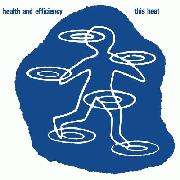 | This Heat
Health and Efficiency
>> JOURNEY TO THE WEST (2014)
Not as intimate as this year’s YOUR FACE, the subject enveloping society as a whole v. hand-picked individuals ; for this reason exactly, it sidesteps enervation among an otherwise exasperating premise by capturing so many insular details that seem to flourish whimsically. (The community’s reactions appear to be entirely impulsive and unrehearsed; if they were indeed premeditated, I would have to commend the level of naturalism they effortlessly displayed.) Favorite moments are the young girl on the stairs who remains utterly perplexed, capturing the quizzical nature of youth without words, or the older gentlemen who apes the slowly traversing monk, a gesture that starts off with a smarmy tone of mockery but, due largely to the length of his commitment, transforms into a genuine act of curiosity. Goes to show you there are so many things for us to observe, directly in front of our eyes, yet we often just choose to look past them in the flurry of life. | | 11 |  | John Zorn
The Big Gundown
>> VIVE L’AMOUR (1994)
Hard to imagine this is someone’s sophomoric effort; it feels like the work of a veteran—confident, self-assured, patently brave. Contains a wide expanse of Tsai's idiosyncractic themes, burdens, motifs (except for rain/water, which is strangely absent), from his jet-black sense of "humor"—e.g. watermelon as bowling-ball-cum-facial-cleanser or the bathtub slip—to the recursive mantra of bone-crushing, limb-buckling loneliness, personified as three separate individuals whose tendrils begin to gently chafe and rub against one another purely by chance. Slightly sluggish midsection, but a wallop of an ending, and one that lingers with uncertainty—is May crying tears of joy because she's glad to have finally found some form of stability, usefulness, merit in her life, even if it's just to offhandedly sleep with someone she barely knows? Or are they tears of sadness, in recognition of her exercise-bike trajectory, pedaling and pedaling but clearly going nowhere? | | 10 | 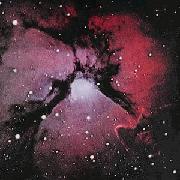 | King Crimson
Islands
>> THE WAYWARD CLOUD (2005)
Opening few scenes establish both the film’s realm of elevated absurdism as well as its allegorical analog between watermelons and sex. And if watermelons are to represent sex, then surely water—in relatively short supply due to a draught—represents love. And in perhaps the most kitschy way possible, Tsai shows us the ridiculousness of a world that confuses sex with love through a paralell guise of a world that tries to substitube watermelon for water. Sure, it might serve as a momentary bandage or temporary relief, but it’s clearly not a sustainable or truly assuaging solution. (People writing this off as nonsensical pornography are the same people praising BLUE IS THE WARMEST COLOR for its “rawness” and “realism”…yawn.) Nothing could prepare me for the intensely bitter finish which juxtaposes sex at its most impossibly detached with passion at its purest, debasing the bridge between the two. Strange? Absolutely. But the world needs more strange. | | 9 | 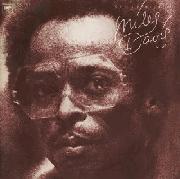 | Miles Davis
Get Up with It
>> GOODBYE, DRAGON INN (2003)
What continues to impress me about this (as well as much of Tsai’s work) is how effective he is at letting his images “do the talking,” often resulting in very sparse use of dialogue. Seriously, how many times have laconic tours de force been crippled when the director decides to intercede with a lengthy monologue? It's refreshing to see someone so confident in their own tranquil lyricism that nothing ever feels compromised: Imagery that is at once striking and conceivable, able to elicit a peculiar magnetism rooted in situational despondence. Denoting this as a simple parable of the Death of Cinema glosses over the much richer prying of the human desire for connection—with ourselves, with our peers, with other generations, with clandestine lovers, and with the places and things that have meant so much to us: The projectionist’s final walk alone in the rain, knowing it will be the last time she's exiting that historic theater, is heartbreaking. | | 8 | 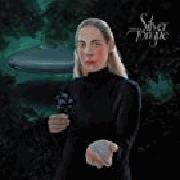 | Torres
Silver Tongue
>> DAYS (2020)
Though you could claim Tsai’s films all deal with existentialism to some degree, never before has his acknowledgment of corporeal entropy been so focal or so crucial, made additionally poignant coupled against an aging filmmaking duo whose mortality is becoming more and more of a reality, their bodily decay an unavoidable persistence. Part of the tangibility here is that it’s not entirely fictional—Lee was (and likely still is) suffering from a very serious illness, one causing him great muscular discomfort and pain, and one that neither street-side remedies nor at-home therapies can placate. It’s there that Tsai bridges the gap between body and spirit, between the physical and the psychological, suggesting the equality of their importance to what we consider “being healthy.” It’s Tsai’s LIMELIGHT, obviously, and as pleased as I’d be if he were to make another twenty films, it’d be difficult to imagine a better—or more fittingly bittersweet—swan song than this. | | 7 | 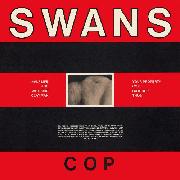 | Swans
Cop
>> I DON’T WANT TO SLEEP ALONE (2006)
Perhaps Tsai’s most wholesome film, given that each central character is, in some way, in service to another; but ringing stronger than genuine compassion is the inescapable millstone that our physical bodies place upon their spiritual counterparts. We must be taken care of—nurtured, cleaned, groomed, cared for, loved—and there’s only so much we can handle on our own. The parallel, in keeping with Tsai’s usual themes of loneliness and isolation, is that human contact and intimacy are as necessary as breathing, a metaphor that is brought to exactitude in the film’s final act, when a toxic smog descends upon the city, making oxygen a rather hot commodity. Even in an epidemic that threatens basic existence, there’s a need for intimacy. Do we cherish the fact that these people have found solace in the physical reciprocation of someone else, or do we wince at the notion that we’ll always be intermingled creatures encumbered by dependency on others? | | 6 | 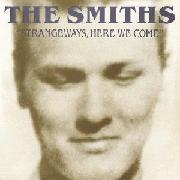 | The Smiths
Strangeways, Here We Come
>> REBELS OF THE NEON GOD (1992)
Disaffected misconduct coming to fruition at the hands of immense loneliness and infinite malaise : Tsai's first feature-length film feels right at home alongside the rest of his catalog, harboring the same pensive voyeurism and meditative tendencies that would eventually come to sculpt the very definition of his style. Water as a symbolic oppressor, isolation as a cataclysmic prod, general emptiness as a full-scale model of the human spirit, and the material longing for something unfamiliar. A bit coarse around the edges, less austere, maybe even lacking some of that stringent luster of his later work, but every bit as colossally humane and enriched in a world of never ending ennui. It becomes dangerous when we have literally no one to confide in besides ourselves. We start to envy and long for the less savory. But perhaps it’s not the lifestyle itself that we’re after. We're just bored, and anything else—as long as it's different—will suffice. | | 5 |  | Tindersticks
Tindersticks
>> STRAY DOGS (2013)
More obvious than ever that Tsai is in complete control of his languid domain, every other long-take littered with spurts of visual and aural virtuosity, including some breathtaking transitions—my favorite is the awkward birthday celebration, a sequence that is entirely (and only) punctuated beyond the pitch-black surrounding via candles on the cake—with several instances of eminent darkness smash cutting directly into seething sunlight that reflexively caused me to jerk and squint. It's discombobulating, but it works in the sense that it knocks our equilibrium off kilter to more closely resemble the dismal riptide of the film itself. Lots of obfuscated surrealism, too, like the tri-actress woman (and I’m still not sure precisely what her purpose is), but there's such an abundance of formal splendor that Cubist interpretations hardly matter. The heartbreak is evident all the same: The struggle for not just happiness but *basic fucking existence* is gut-wrenching. | | 4 | 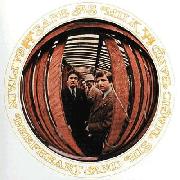 | Captain Beefheart and His Magic Band
Safe As Milk
>> FACE (2009)
Plays like an anthology of Tsaisms, a collaboration of his most definable themes and cinematic techniques rolled into a highball of kinetic energy. Recycled compilations often get dismissed for laziness or lack of originality, but that hardly applies in this case because Tsai percolates his assemblage of motifs and routines through an unfamiliar context: France. (Yes, a portion of WHAT TIME IS IT THERE? is set in France, but his usual comfort zone—i.e., Taipei—is exceedingly scarce here.) And when combined with his genuine appreciation and love of French culture and cinema (and, specifically, Francois Truffaut + Jean-Pierre Léaud), the result plays out like Tsai’s variation on IRMA VEP (only more glaringly surreal)—a metatexual ode for ode’s sake, built with a sort of unrestrained compassion—structured along the lines of e.g. EYES WIDE SHUT (though far muddier) where scene-to-scene narrative fluidity is compromised in lieu of raw artistic domain. In a word? Mesmerizing. | | 3 |  | Today Is the Day
Sadness Will Prevail
>> THE HOLE (1998)
Wasn't at all prepared to see Tsai’s recurring signifiers applied to his interpretation of a rom-com-musical. Yes, there's romance (girl meets boy). There's comedy (his most laugh-out-loud work to date). There's music (with choreographed interludes). Rain is still his favorite element, the enforcer of solitude: In this instance, its presence is even more ominous than usual, its heavy patter always in the background, drowning out much of the foreground sound (emphasizing how little he relies on dialogue to make his points—something I'll forever admire) and sequestering our protagonists from the world around them. Their only connection is the titular lack of material at a specific point between the two apartments. The hole itself represents many things butmost importantly, it's a connection, both literally and figuratively, a force majeure osmosis between two lonely individuals who otherwise would never meet. Cynical? Maybe. Touching? Strangely. Fascinating? Always. | | 2 |  | Sigur Ros
Takk...
>> WHAT TIME IS IT THERE? (2001)
Both strangely humorous at times—e.g. the way Hsiao-kang exhibits the durability of his watches by banging them against a metal railing, or [scene in the bathroom stall]—and deeply affecting, striking a chord not only for missed connections and isolation, but also with how we all respond to grief and loneliness differently. As self-assured as any of Tsai’s other films—perhaps because it was so personal for him—and his formal conviction is remarkably patent throughout, translating to a sincere respect for his audience. He never feels the need to coddle or pamper us, and I can’t explain how invigorating that is. A haunting parable about Time—about its irrevocability, its persistence, its unforgiving nature, and the inevitability that it will one day separate us from what we love—that thrives in the details. Lost it when the mother begins taping her windows shut, again when she confides in a fish. Final scene makes for his most haunting closure yet. | | 1 |  | Bruce Springsteen
The River
>> THE RIVER (1997)
Wrote a lot about my favorite Tsai film (as well as his formal mastery in a more general sense) and can’t really do it justice by truncating it to Sputnik’s lame 1000 character limit. So, if you’ve made it this far and are still interested in what I think about this film, I urge you to check out the full review, here:
https://rateyourmusic.com/film_collection/tectactoe/review253072 | |
tectactoe
03.15.20 | *thumbs up* Who’s with me? | ArsMoriendi
03.15.20 | I've only seen Vive L'amour
Good movie | ArsMoriendi
03.15.20 | I wanna see the Wayward Cloud though cuz my friend showed me the watermelon dance number and it was awesome | robertsona
03.15.20 | THE RIVER is my favorite as well and one of my favorite movies. If you have Amazon Prime, you can watch STRAY DOGS and THE RIVER with free trials of Fandor and Filmbox, respectively | robertsona
03.15.20 | I ghostwrote an essay for someone else’s gender studies class about THE RIVER maybe I’ll send it to you | samwise2000
03.15.20 | Needed something to watch during this whole quarantine thing... Which of these would you say is the best introduction to his work? | tectactoe
03.16.20 | @rob, I’d love to read it.
@sam: I’m always a fan of going chronological whenever possible, and REBELS OF A NEON GOD is probably his most approachable work, too. Aside from that, I’d also say WHAT TIME IS IT THERE is a good way to ease into his style. | Winesburgohio
03.16.20 | i love you (even though our rankings differ, great write-ups) | Zig
03.16.20 | have What Time Is It There? on my watchlist | tectactoe
03.16.20 | @Zig - let me know what you think, once you see it.
@Wines - you know I gotta see that list bb | Winesburgohio
03.17.20 | I love the moral complexity of I Don't Want to Sleep Alone but i love most of the films here and any 4 could make an argument for the top spot. Vive L'Amour and Goodbye Dragon Inn are gently heartbreaking, and I love how quiet the latter is while connoting earlier bustle. such an accomplished director | tectactoe
03.17.20 | yeah, he really is. every bit as good a writer, too. i really thought STRAY DOGS would be his last "conventional" (narrative) feature film, so DAYS was a huge shock. wonder if he'll make any more fictional features from here on out, and while i'd obviously love him to, i can't say i'd be upset if this ended up being his whole filmography. it's too damn good. | tectactoe
03.19.20 | Lotta people strong armed me into this list and now no one wants to talk about one of this era's greatest filmmakers.
If anyone wants a copy of DAYS, lemme know. | robertsona
03.19.20 | hmu with DAYS afr2134@columbia.edu | robertsona
03.19.20 | that way i'll receive your email and send you the THE RIVER essay | tectactoe
03.19.20 | *thumbs up* |
|
